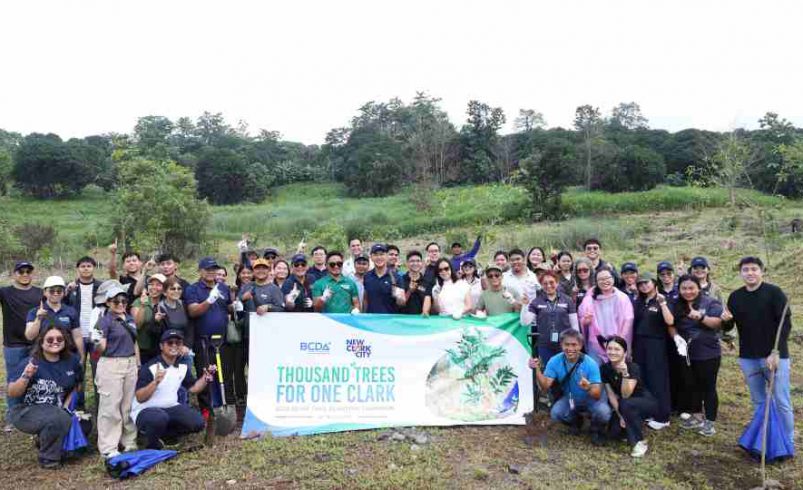811 trees planted so far in BCDA’s Smart City site
- July 18, 2025
- 0

The Bases Conversion and Development Authority (BCDA) has planted 500 additional native and endemic trees in New Clark City, advancing its goal of planting 1,000 trees by the end of 2025. The effort underscores the agency’s long-term push to integrate sustainability into infrastructure development.
BCDA officers and employees, led by President and CEO Joshua M. Bingcang, planted native species such as Amugis, Dao, Salingogon, Kamagong, and Banaba on a one-hectare site along One Clark Boulevard in Capas, Tarlac. The activity, held on July 10, is part of the “Thousand Trees for One Clark” initiative.
“This initiative underscores our dedication to building infrastructure that nurtures both progress and the environment. It’s about creating spaces that foster well-being, recreation, and a connection with nature,” said Engr. Bingcang.
Since January, BCDA and its partners have planted 811 trees in the area. With an 80% survival rate from previous planting efforts, the agency is targeting an additional 1,000 trees within the year.
The tree species were chosen for their capacity to enhance biodiversity, prevent soil erosion, stabilize riverbank land, and serve as natural carbon sinks—efforts aligned with the UN Sustainable Development Goals on sustainable cities (SDG 11), climate action (SDG 13), and partnerships (SDG 17).
BCDA has led similar initiatives since 2019, including the “100 Trees for 100 Days” campaign for the SEA Games and a partnership with the Abacan River and Angeles Watershed Advocacy Council Inc. in 2022. More recently, BCDA held tree-planting events with Catholics for Life and the Tourism Promotions Board in June 2025, contributing 90 and 171 trees, respectively.
The tree-planting drive complements BCDA’s broader vision of New Clark City as a smart, sustainable metropolis. Energy infrastructure has been integrated into the city’s masterplan from the outset, with dedicated zones for renewable energy and utility corridors for smart systems. Key projects underway include a 33-megawatt solar farm, rooftop solar installations for government facilities, and a PHP 30-billion district cooling system being developed with international partners to improve energy efficiency across multiple buildings.
BCDA is also preparing to operate as a Retail Electricity Supplier (RES) to directly serve its own developments, underscoring its commitment to long-term, clean energy integration at the city planning level.
How can large-scale public projects further align with environmental goals while meeting urbanization demands?
Follow Power Philippines on Facebook and LinkedIn or join our Viber community to stay up to date on the latest energy news.